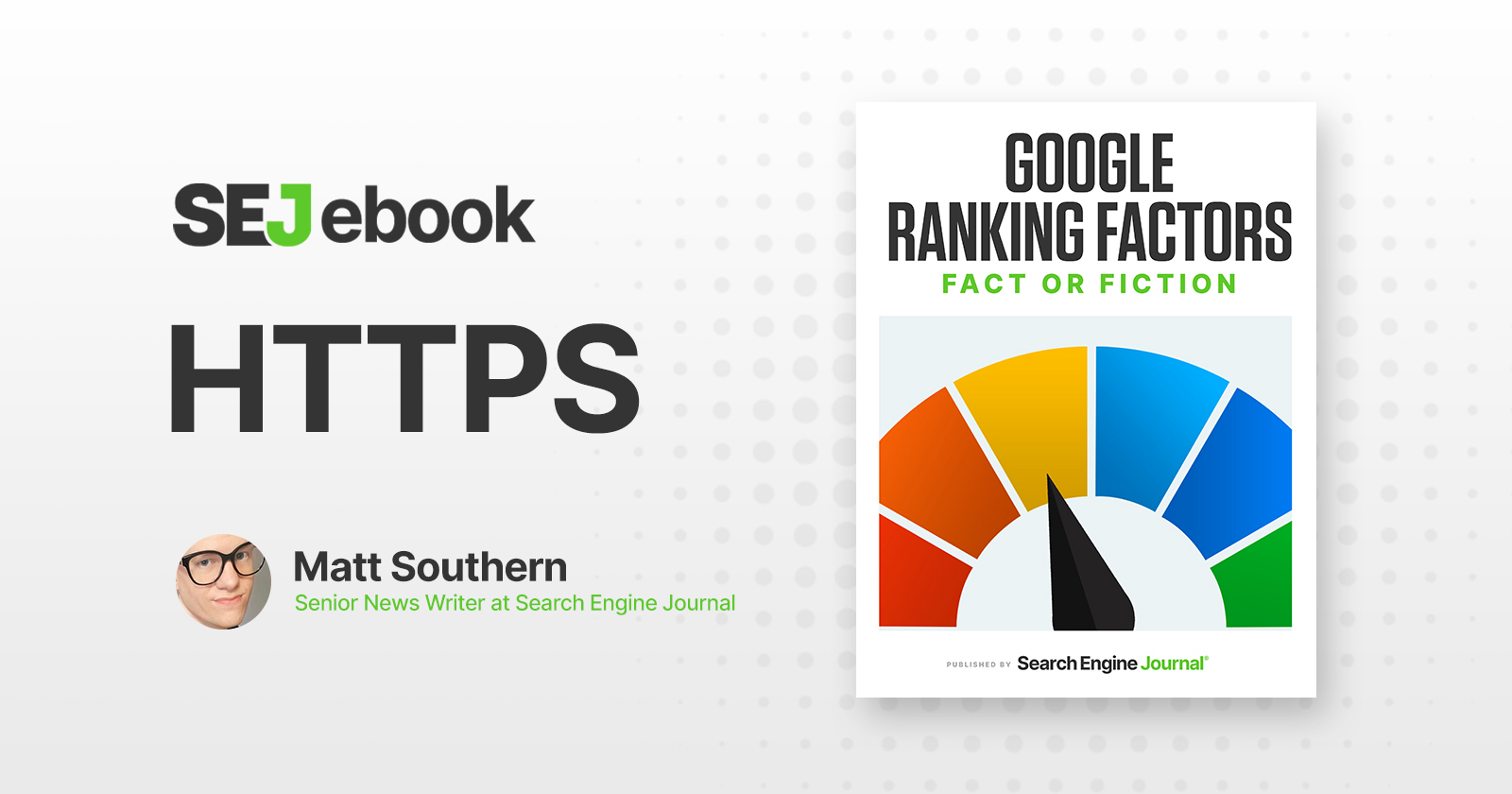More than a nice-to-have addition to a website, HTTPS encryption plays an important role in search rankings.
HTTPS makes websites safer for users to visit, and that added layer of security is highly valued by Google.
If there’s any question whether HTTPS is a ranking factor, this chapter will clear everything up.
Here’s what you need to know about HTTPS and its relation to search.
The Claim: HTTPS Is A Ranking Factor
When a website is encrypted with HTTPS it’s said to receive a boost in search rankings over HTTP sites.
One of the bases for this claim is Google rewards websites that provide a good user experience, and enhanced security is a way to make sites better for users.
Advertisement
Continue Reading Below
This claim also stems from the fact that Google’s Chrome browser displays a warning before users visit non-HTTPS websites. The warning is enough to make even the most non-SEO savvy individual recognize that Google treats HTTPS differently.
Further, there are claims regarding the strength of the HTTPS ranking signal that can vary from one extreme to another.
We’ll address all these claims in the next section and get to the truth with evidence from Google.
The Evidence: HTTPS As A Ranking Factor
Evidence of HTTPS as a ranking factor dates back to August 2014.
Google published a blog post announcing HTTPS had become a signal for its search ranking algorithms.
Advertisement
Continue Reading Below
“… over the past few months we’ve been running tests taking into account whether sites use secure, encrypted connections as a signal in our search ranking algorithms. We’ve seen positive results, so we’re starting to use HTTPS as a ranking signal.”
When this update was first rolled out, Google said HTTPS would be a “lightweight” ranking signal.
That appears to be the case to this day; Google’s Gary Illyes said the idea of boosting the ranking signal has been discussed but the team decided against it.
That doesn’t mean site owners should treat HTTPS as anything less than a priority, though. Illyes advised that the signal “affects enough queries measurably that I wouldn’t ignore it.”
HTTPS As A Ranking Factor: Our Verdict

HTTPS is a confirmed Google ranking factor.
The impact of the HTTPS ranking signal is said to be slight, often referenced as a “tiebreaker” signal.
Advertisement
Continue Reading Below
That means HTTPS can make the difference in ranking positions between two relatively equal sites.
With that being said, site owners shouldn’t underestimate Google’s appreciation of a good user experience.
Google values HTTPS so strongly that it’s a component of another ranking signal. The page experience signal takes into account a number of UX factors, with one of them being HTTPS.
Websites could, in theory, benefit from both the HTTPS and page experience ranking boost. That turns a lightweight signal into a stronger signal.
Although it’s a confirmed ranking factor, keep in mind an HTTPS site can still be outranked by an HTTP site.
Advertisement
Continue Reading Below
Relevance is key when it comes to search rankings. If the content most relevant to a query is on a non-HTTPS site, it will likely rank ahead of encrypted sites.
Even with all the benefits of HTTPS taken into consideration, it’s not a silver bullet. If a site has poor rankings to begin with, HTTPS will not fast track it to the first page of Google.
In other words: HTTPS is not the be-all, end-all of search rankings, but it is a factor. Most importantly, Google recommends it.
Featured image: Paulo Bobita
